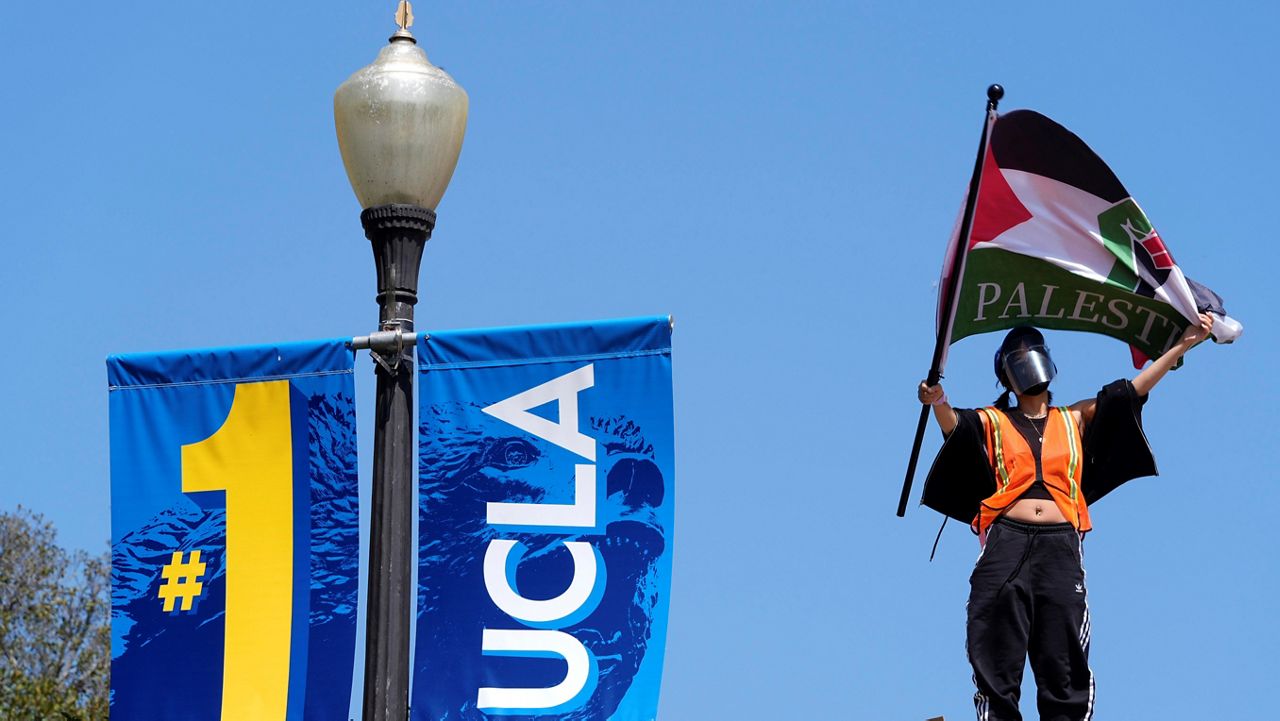OAKLAND, Calif. — Faculty have accused the University of California system of labor violations over what they say was a sweeping campaign to suppress pro-Palestinian speech and campus protests across the state earlier this year.
The Council of University of California Faculty Associations made the allegations in a complaint filed last week with the state Public Employment Relations Board. Faculty associations at seven UC campuses co-signed the unfair labor practice charge, including Los Angeles, Irvine, San Diego, Santa Cruz, Berkeley, Davis and San Francisco, the Los Angeles Times reported Monday.
The council said UC administrators have threatened faculty for teaching about the history of the Israeli-Palestinian conflict and launched disciplinary proceedings for those supporting on-campus student encampments.
The group's president, Constance Penley, described the university’s actions as a “relentless campaign to chill faculty’s exercise of their academic freedom and to deter them from teaching about the war in a way that does not align with the university’s position,” according to the Times.
Protest camps sprang up across the U.S. in the spring, including at UC campuses, as students demanded that their universities cease doing business with Israel or companies they said supported the war in Gaza.
California faculty have also been investigated for pro-Palestinian social media posts, arrested for exercising their free speech rights and were surveilled and intimidated by university representatives, the state filing alleges.
The Times said that months after police cleared pro-Palestinian encampments at universities, the fallout has continued at campuses statewide, with university officials implementing new protest rules and student protesters grappling with ongoing suspensions and holds on their records.
The university system defended its actions. UC spokesperson Heather Hansen pointed to a university statement previously filed with the state labor board in response to an earlier filing by the UCLA Faculty Association.
The university stated that while it “supports free speech and lawful protests,” it must also “ensure that all of its community members can safely continue to study, work, and exercise their rights, which is why it has in place policies that regulate the time, place, and manner for protest activities on its campuses.”
The Public Employee Relations Board will review and evaluate the case, and decide whether to dismiss the charge or proceed with having parties negotiate a settlement. If no settlement is reached, the case would be scheduled for a formal hearing before an administrative law judge.



